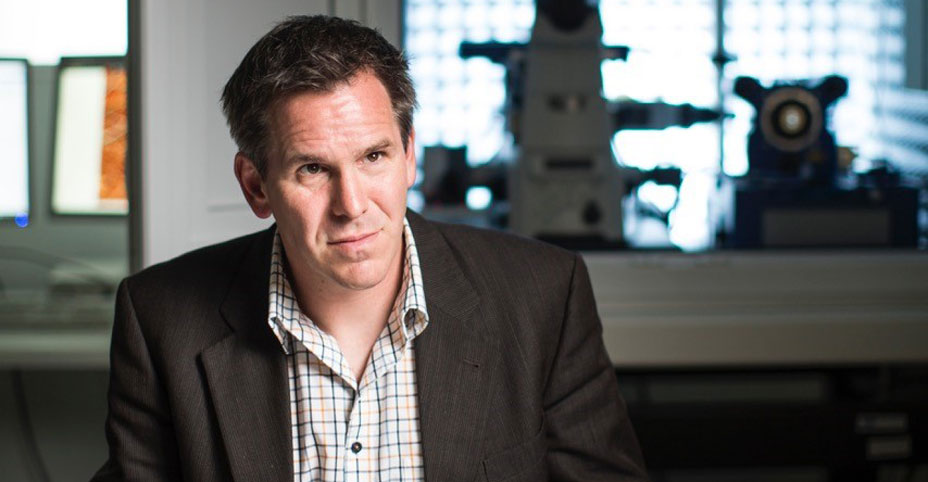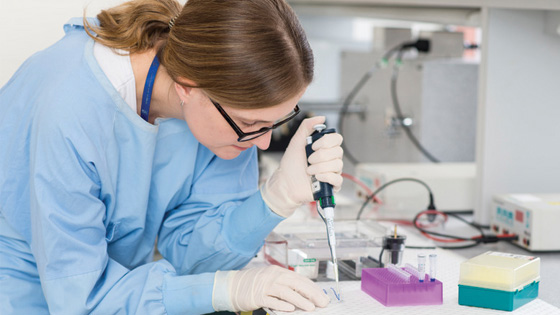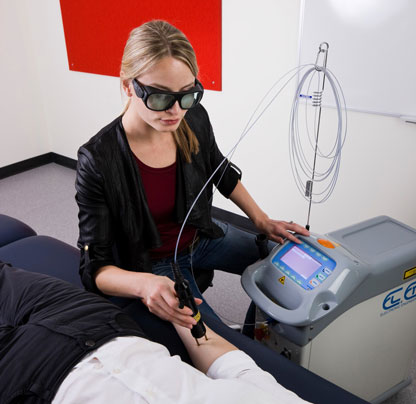
Professor Nico Voelcker, Future Industries Institute, University of South Australia
Researchers are currently using nanotechnology to enhance brain tumour therapy and detection systems, treat those suffering from type 1 diabetes, improve immune responses for transplant patients, and produce bandages that can diagnose and treat infection.
Enhancing cancer therapy through targeted drug delivery and better detection systems
The group at the University of South Australia, lead by Professor Nico Voelcker, are working on enhancing brain tumour therapy and detection systems. They are developing silicon nanoparticles that can be loaded with cancer fighting drugs and deliver those drugs directly to a tumour, which break down in the body to avoid side effects.
These also contain unique imaging functions that will allow tumours to be much better detected through magnetic resonance imaging (MRI). By using light sensors to pinpoint on the MRI exactly where the tumour is located, these unique nanoparticles could target a wide variety of difficult to treat tumours. Better tumour detection systems could advise surgeons exactly where those tumours are, and whether they need to be treated or resected.
You can learn more about these exciting developments here.
Treatment for those suffering from type 1 diabetes
Prof Voelcker’s inventive research includes the delivery of islets, which are the cells in the pancreas that are responsible for controlling glucose levels and producing insulin. With so many people unable to produce their own insulin, and consequently suffering from type 1 diabetes, implanting islets in a suitable carrier such as a nano-engineered biomaterial could then be delivered to a patient. This would allow patients to regulate their glucose levels without the need for regular insulin injections and without requiring immunosuppressant drugs.
Improving immune responses for transplant patients
Current immunosuppressant drugs make cancer patients, including organ transplant recipients, vulnerable to infections and other diseases. Prof Voelcker and his team are utilising nanotechnology in cell therapy and tissue engineering by encapsulating cells within nano-engineered devices. This concept allows donor cells to be implanted within a patient to restore tissue function and fight disease, without triggering immune responses.
Producing bandages that can diagnose and treat infection
Prof Voelcker’s research includes investigating silicon-based nanomaterials that assist with the process of creating smart bandages designed to facilitate the management of wounds. What is unique about this particular type of wound dressing is that the bandages are equipped with tiny sensors, which are designed to detect infection by monitoring changes to temperature and pH levels within the wound environment.
As changes in the wound environment are detected, the smart bandages automatically release therapeutics from the surface thus treating the infection immediately. The sensors are also prompted to display as red in colour when these changes are detected, and by using Bluetooth technology imbedded within the sensors, it is possible for doctors to be alerted when the bandages require attention.
How you can help
You can support Prof Voelcker’s research and help deliver game-changing advancements to health and medicine worldwide.

100% of your gift will go directly to support health research at UniSA - there are no administration fees, no overheads and no hidden costs.
Support our researchers continue their work in preventing illness, improving health systems and services, creating more effective therapies, and advancing health equality.
